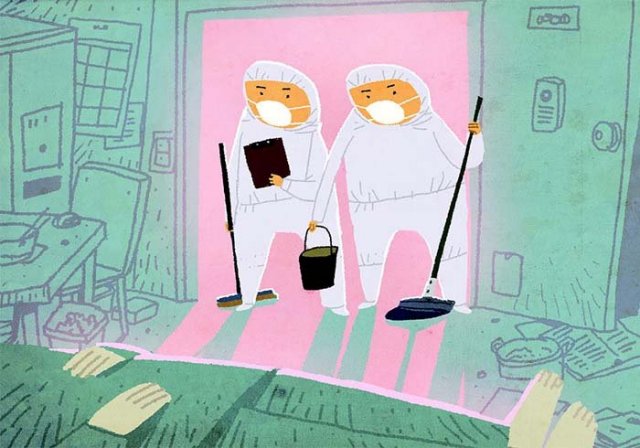More Older Koreans Die Unattended
Published on | Source
More and more elderly Koreans die alone without family or friends to tend to their bodies, often because they are poor or are found dead on the street.
Advertisement
According to data from the Ministry of Health and Welfare and National Health Insurance Service last week, 2,447 older people died alone last year and had no family or friends to take care of their funeral arrangements. That was a rise of 437 from 2017, the biggest rate of increase since the government began tallying such statistics in 2012, when the number was 1,021. It has since grown 2.4 times.
People in their 60s accounted for 60 percent of lonely deaths, but the proportion of those in their 50s accounted for more than 20 percent. Last year, 565 people in their 50s died alone, compared to 460 in 2017. Seven out of 10 people who died alone were welfare recipients, and the cause of death was unverified in 437 cases, while 152 remain unidentified.
Liberty Korea Party lawmaker Kim Seung-hee, who published the data, said the government is not doing enough to care for abandoned older people. The ministry told the National Assembly in April that some 2,279 people died alone last year but has revised that figure to 2,447 just ahead of a National Assembly audit next month. "It's hard to trust the government's drive to bolster welfare coverage if it can't even accurately assess the number of people who die alone", Kim said.
The problem could worsen as more Koreans descend into poverty and the number of lonely senior citizens soars. According to Statistics Korea, the proportion of elderly people who live alone rose from 18.4 percent in 2015 to 19.4 percent last year, while their numbers increased from 1.2 million to 1.4 million.
The rate of poverty among the elderly in Korea is the highest in the OECD at 46.5 percent as of 2016. That means half of all senior citizens live on smaller incomes than mid-level wage earners.
Yun Suk-myung at the Korea Institute for Health and Social Affairs said, "The figures show that there are more people falling through the cracks of the social safety net. We need to come up with ways to identify and help such people before bolstering benefits across the board".
